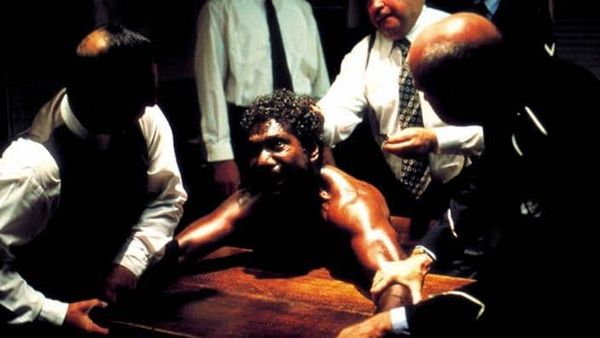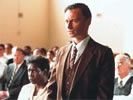Eye For Film >> Movies >> Black And White (2002) Film Review

South Australia in the Fifties was more English than the English, especially in matters of class and race. When a nine-year-old white girl was discovered raped and murdered in a cave along Ceduna Beach, the police picked up a transient, illiterate aboriginal and charged him with the crime.
There are shades of To Kill A Mockingbird, without the passion or the drama or the whole Southern mystique. The problem with Craig Lahiff's film, based on a true incident, is that it reverts to a battle of legal niceties, with the prosecuting council (Charles Dance) representing the Establishment and the defence lawyer (Robert Carlyle) representing small time solicitors.

As a David and Goliath struggle, Dance is stereotyped as a straight-backed, arrogant snob and Carlyle as an honourable man out of his depth. The question of guilt hangs on whether the police hauled in the nearest stray abo and beat a confession out of him, or whether Max Stuart (David Ngoombujarra) did indeed kill the girl. The way the story is told leaves you in little doubt.
Deeply racist and cynical, the story switches from a little lawyer fighting the system to save a black man from the gallows to the wider political implications of the case, involving parliament and the Prime Minister. Those were the days when to question the word of a policeman in court was to put the future of your business in peril.
The performances fill the space between appeals and commissions with enough sincerity to retain your interest. Kerry Fox has a raw deal. As Carlyle's partner in the law firm, she has to be persistently pessimistic, while giving the whisky bottle a hammering.
Justice has never had good press, but this time Rupert Murdoch (Ben Mendelsohn), of all people, is given the role of champion of the underprivileged. Can you believe it?
Reviewed on: 08 Jan 2004




















